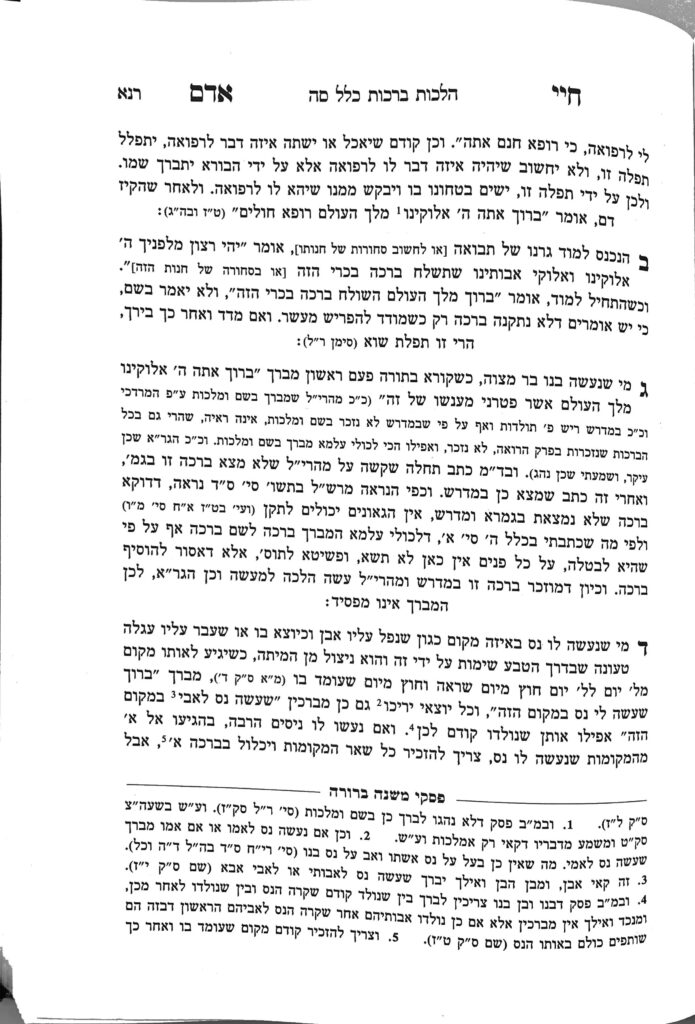We are beginning siman 4. The Chayei Adam discusses the bracha recited on a personal neis which occurred in a specific place. One who experiences a personal neis recites the bracha baruch she’asah li neis bamakom hazeh. The term neis must be defined, and the Chayei Adam grapples with the definition in the text and in Nishmas Adam.
The Shulchan Aruch, in the end of siman 218, brings two opinions. The first is that the neis must be one in which the salvation was out of the ordinary. For example, if someone was saved from a robbery because another person walked in, the salvation in this situation is not necessarily out of the ordinary, so one would not recite the bracha. The second opinion is that the bracha is recited on any neis, regardless of how the salvation came about.
The Shulchan Aruch concludes that, due to the safeik, one should recite the bracha without Hashem’s name in situations where the salvation was not out of the ordinary.
The Chayei Adam, in the beginning of this siman, gives the examples of one who experiences a boulder hitting them or a loaded wagon running them over and they survive the situation. The Chayei Adam’s examples are in between the opinions given by the Shulchan Aruch, as the focus in the Chayei Adam’s cases does not seem to be the extraordinary salvation, but the extraordinary nature of the event itself. Thus, the Chayei Adam holds that one recites the bracha with Hashem’s name on an event which people do not normally survive, even if the salvation was not necessarily extraordinary. The Mishnah Berurah concurs.
The bracha is recited once every 30 days, not including the day the bracha was previously recited, and not including the current day (ie, the bracha can be recited every 32nd day).
The Chayei Adam writes that this bracha extends to a person’s descendants, and they would recite the bracha as well. The simple reason why they recite the bracha is because if the ancestor would not have been saved, they would not exist. However, this explanation only helps to understand why children, and descendants of children, born after the neis recite the bracha. It does not help understand why children, and descendants of children, born before the neis would recite it.
Another reason the bracha is recited is out of hakaras hatov to Hashem for the event which happened to this ancestor. However, based on this reason, the Mishnah Berurah writes that the hakaras hatov only extends for children and grandchildren, as the generation following grandchildren does not have as strong an emotional connection to their ancestor to feel the level of hakaras hatov necessary to recite the bracha. The following generations will only recite the bracha if they were born after the event, because then they are reciting the bracha due to the first reason.
Summary
- One who experiences a personal neis recites the bracha baruch she’asah li neis bamakom hazeh.
- The bracha is recited with Hashem’s name when the nature of the neis was a salvation from an event which one would not survive under ordinary circumstances.
- The bracha can be recited once every 30 days, not including the day it was last recited and the current day.
- Future descendants also recite the bracha. Any children and subsequent descendants born after the neis recite the bracha. However, for a child, and subsequent descendents born before the neis, only children and grandchildren recite the bracha.



